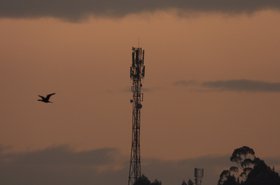Brazilian telecoms regulator Anatel (Agencia Nacional de Telecomunicacoes) has outlined plans to speed up the shutdown of the country's legacy 2G and 3G mobile networks.
As reported by CommsUpdate, Anatel's Superintendence of Grants and Resources is planning to issue subsidies to mobile operators, equipment vendors, plus end users, to speed up the transition from legacy 2G and 3G technological standards to 4G and 5G platforms.
A 30-day window to submit feedback on the proposal began on September 29.
In a statement, the regulator said: "Technological evolution is a constant phenomenon that drives progress in all areas of society. With regards to [mobile] systems, the transition from 2G and 3G technologies to more advanced technological standards, such as 4G and 5G is a necessary step to meet the demands of new applications and business models, in favor of the country’s digital transformation and in a way that directly benefits consumers, the various economic sectors and industry.
"Restricted or 2G/3G-only supported devices use spectrum less efficiently and, globally, their isolated ecosystems are becoming obsolete to meet the demands of current applications."
Anatel noted that as of August 2023, there are over 21.4 million 2G active subscriptions across Brazil and 21 million 3G subscriptions.
Mobile operators across the world are currently closing or have closed their 2G and 3G networks in favor of pushing their 4G and 5G services instead.
Japanese telco SoftBank Corp announced earlier this week that it will flick the switch on its 3G network on January 31, 2024.
Slovak Telecom confirmed last week it will begin its 3G shutdown this month.
Elsewhere, Telia Finland kicked off its 3G network switch-off earlier this month, while its Danish and Lithuanian businesses have already retired their respective 3G networks.
In the UK, EE confirmed it will begin its 3G switch-off in January 2024, while Virgin Media O2 will switch off its 3G network in 2025.







